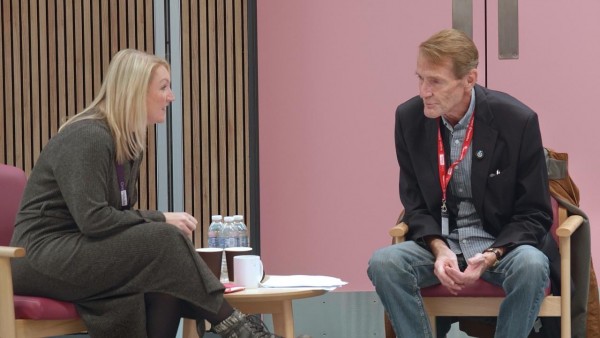Defining Social Mobility
Social mobility is about how a person’s background shapes their opportunities in life and whether the circumstances you’re born into determine where you end up.
It’s a simple idea with complex implications for fair access to work, progression and reward across generations.
Recent studies by the Social Mobility Foundation, the Sutton Trust, and the Social Mobility Commission show that while awareness of how to support social mobility is growing, the UK still faces deep structural divides. The Social Mobility Foundation’s Employer Index 2025 revealed that 74% of participating employers now collect socio-economic background data, but only a third use it to shape recruitment or progression decisions. That suggests a majority of businesses are aware disparities exist - but perhaps lack understanding of how to develop and apply fixes.
The Social Mobility Commission continues to report a persistent “class pay gap”, with workers from lower socio-economic backgrounds earning up to £6,700 less a year than peers with similar qualifications. Access has improved, but equality of outcome still lags behind.
The State of the Movement
For employers, social mobility is a strategic concern. The 2024 SOMO report, “Still in First Gear?”, found that most participating organisations are focusing heavily on outreach - building school links, mentoring, and entry routes - but far fewer are tackling retention, progression, and pay equity for those they recruit.
This matters because outreach opens doors, but progression and fair reward keep them open.
Co-op and Demos (2024) research goes further, estimating that closing the social mobility gap could add £19 billion a year to the UK economy. Yet, the same year, the Living Wage Foundation reported that 15.7% of UK jobs were still paid below the voluntary real Living Wage. It’s a tension that many employers now feel acutely: the desire to broaden opportunity, while absorbing economic pressures that make changing levels of pay difficult.
Access vs Wages - Finding the Balance
Entry routes - apprenticeships, pre-employment training, and partnerships with community organisations - create pathways for people who might never have imagined working in certain industries - but they can also introduce a new dilemma.
If entry-level routes remain low-paid, the very people those schemes are meant to support may still struggle to stay in work, particularly during a cost-of-living crisis. That suggests social mobility can’t be separated from pay, progression, and job design. Inclusion without fair reward for growing skills and productivity is not sustainable.
The leading employers in this space - many within the SRAG network - are taking a more joined-up approach:
-
Embedding social recruitment frameworks that directly link hiring to training and career progression.
-
Reviewing wage structures for apprenticeships and entry roles to reflect living costs.
Paying people on work trials or internships, and making sure work experience provides real insight and understanding, (not tea and coffee making for the team).
-
Measuring socio-economic background data to monitor representation and advancement.
This is where the Social Recruitment Advocacy Group (SRAG) plays an active role - helping employers move from principle to practice, and from access to advancement.
The Generational Picture
As the SRAG’s upcoming Oxford Summit explores, social mobility through the generations isn’t just about who gets hired today - it’s about how opportunities and wages evolve over time. Workers currently in their fifties may now be the first generation to end up poorer than their parents, according to long-term studies by the Institute for Fiscal Studies, marking a reversal in the traditional expectation of upward mobility.
That reality gives this agenda new urgency. Improving access is no longer enough; the challenge now is how employers and government can protect the real value of wages and progression for everyone.
In Practice
At its best, social mobility is not a slogan but a framework:
-
Recruit for potential, not polish.
-
Pay fairly and transparently.
-
Track outcomes over time, not just inputs.
-
Invest in skills that build independence, not dependency.
As Jo Whight, an advocate practical social mobility tactics and speaker at the SRAG Summit on 4.12.25, puts it:
"We need to talk honestly and challenge each other about what it takes to turn good intent into real action."














